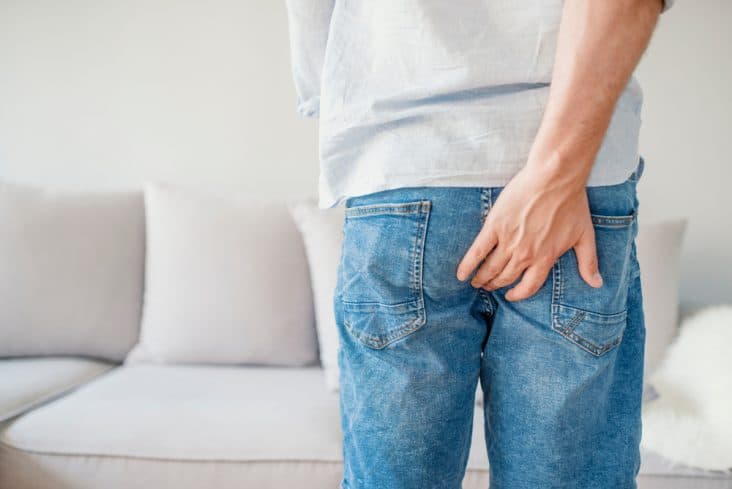Haemorrhoids, also known as piles, are swollen veins in your anus and lower rectum that are similar to varicose veins. While experts haven’t reached a consensus on the more scientific causes of haemorrhoids, risk factors range from straining during bowel movements to regular heavy lifting.
Haemorrhoids tend to be quite common but the symptoms aren’t always obvious. They can become an issue when the swollen veins cause itching, pain or bleeding.
Haemorrhoids can either be internal or external. Internal haemorrhoids may develop within the anus or rectum and external haemorrhoids outside of the anus.
In Australia, symptomatic haemorrhoids are thought to affect at least 50% of the population at some time during their lives and around 5% of the population at any given time.
Symptoms
In most cases, the symptoms of haemorrhoids may not be serious and may resolve on their own. If you have haemorrhoids, you may experience a range of symptoms, which include:
- A hard, possibly painful, lump around the anus.
- The feeling that your bowels are full even after passing stool.
- Visible, bright red blood in your stool.
- Itchy, red, and sore skin around the anus.
- Pain during bowel movements.
Haemorrhoids can escalate into a more severe condition. In this case, you may experience other symptoms, which include:
- Excessive anal bleeding – possibly leading to anaemia
- Infection
- Faecal incontinence or an inability to control bowel movements
- Anal fistula – the creation of a new channel between the surface of the skin near the anus and inside the anus
- A strangulated haemorrhoid where the blood supply to the haemorrhoid is cut off (this causes complications including an infection or a blood clot)
Causes
The causes of haemorrhoids may be due to increased pressure in the lower rectum. Experts say that genetics could be one of the causes of haemorrhoids and some argue that it may be due to strenuous activities you do on a daily basis.
Certain studies even suggest that standing too much without taking a break to sit, anal sexual intercourse, and/or diarrhoea can be one of the causes of haemorrhoids. If not, these behaviours may increase your risk of developing haemorrhoids.
According to experts, common causes of haemorrhoids include:
- A family history of haemorrhoids
- Straining during bowel movements
- Sitting for a long time on the toilet
- Having chronic diarrhoea or constipation
- Obesity
- Pregnancy
- Maintaining a low-fibre diet
- Regular heavy lifting
- Colon cancer
- Prior rectal surgery
- Spinal cord injury or a lack of erect posture
Treatment
If you are experiencing symptoms likely secondary to haemorrhoids, give it a few days as they tend to resolve naturally. If symptoms don’t ease after a week, if the symptoms recur or if you start to experience extensive bleeding during bowel movements, it’s important to consult a doctor as further investigations will be required to exclude other causes for the symptoms and also to look for complications that may have developed.
The best course of treatment may be certain lifestyle changes and these may include:
- Dietary changes: You may be asked to include more fibre in your meals as this will make bowel movements easier and reduce straining.
- Losing weight: If your weight is considered unhealthy, you may be asked to lose weight to lessen the severity of your symptoms.
- Exercise: This not only improves bowel movements, but may also prevent haemorrhoids.
If you are experiencing more severe symptoms, your doctor may prescribe medication to make your symptoms more manageable. This may include laxatives to ease bowel movements, corticosteroids to reduce inflammation and pain, and over-the-counter medication to soothe redness and swelling around the anus.
Request more information about the signs, treatment, and causes of haemorrhoids
If you are experiencing symptoms related to haemorrhoids for over a week, consulting a gastroenterology specialist can help address the causes and symptoms of haemorrhoids, and help you recover faster without developing any complications.
Please note that due to COVID-19, our clinic has revised its safety protocols to protect the health and wellbeing of our patients and staff.

